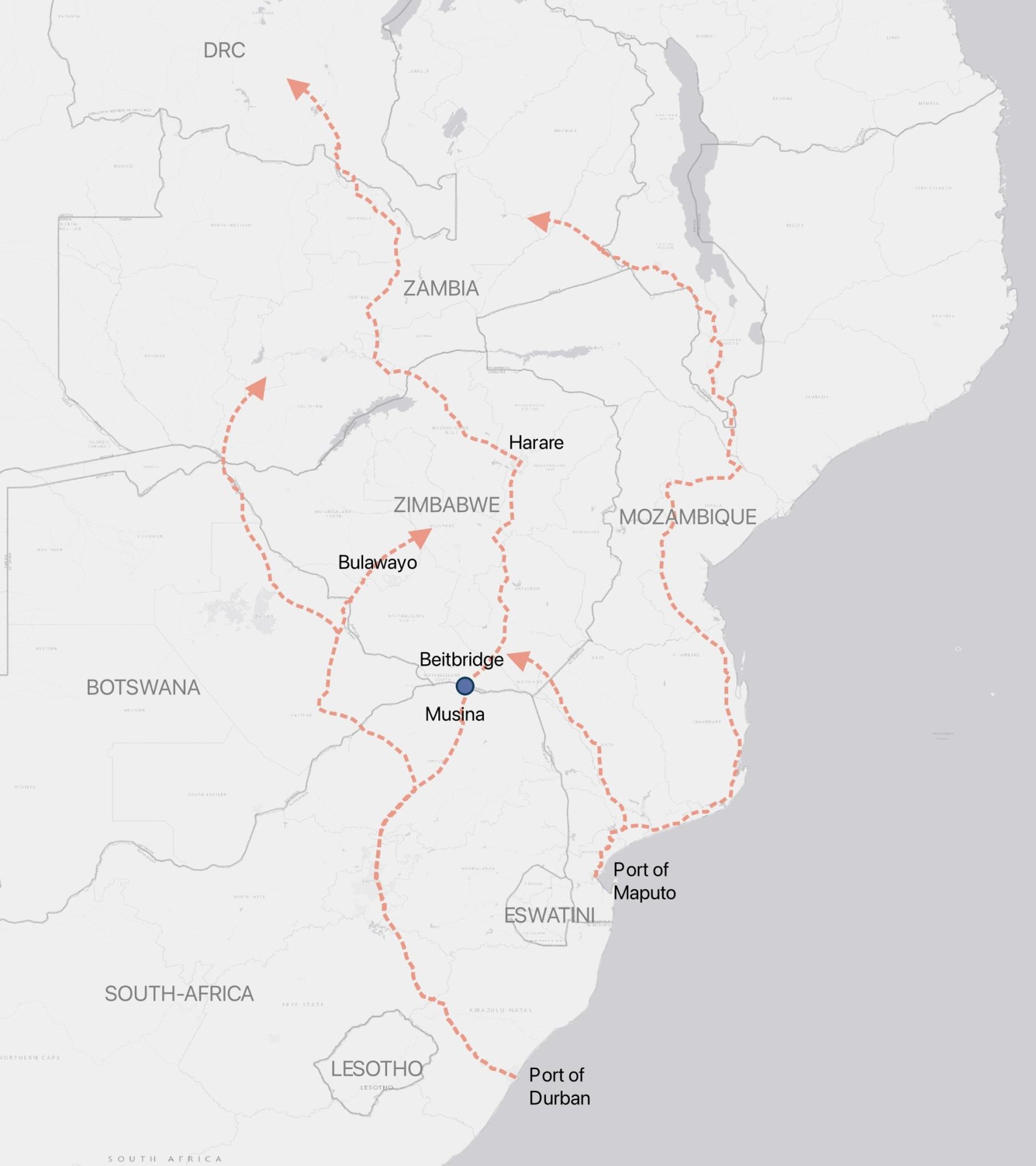Impact study for the Private Infrastructure Development Group (PIDG)
PIDG, through its subsidiary the Emerging Africa and Asia Infrastructure Fund (EAAIF), invested with a mix of senior and junior debt in the upgrade of the Beitbridge Border Post, an important gateway between Zimbabwe and South Africa, to ease congestion, stimulate trade and strengthen regional infrastructure. As the region’s first Public-Private Partnership (PPP) of this kind, PIDG commissioned an ex-post impact assessment to understand the upgrade’s local, national and regional economic effects.
Steward Redqueen conducted an independent impact assessment. We combined qualitative research with quantitative analysis of customs and traffic data, measuring shifts in trade volumes, government revenue, and crossing times. As part of the evaluation, our team conducted a site visit to the border post to complement the analysis, providing firsthand insights from interviews with border users and local residents, assessing their experience with the upgraded infrastructure.
The assessment found that the project delivered wide-ranging benefits, including improved user experience and reduced crossing times. It also had unintended effects, creating enhanced economic opportunities for informal female traders who crossed and moved goods on foot. Overall, PIDG’s investment has contributed to broader market transformation and created lasting value for the Zimbabwean economy. The project has since become a blueprint for PPP border‑infrastructure upgrades, with several similar initiatives now underway across the region. The evaluation offers a useful reference for future impact assessments.
For more details read the case study on page 52 here and 53 of PIDG’s 2024 Sustainability and Impact Report here or the impact story of the project here.

